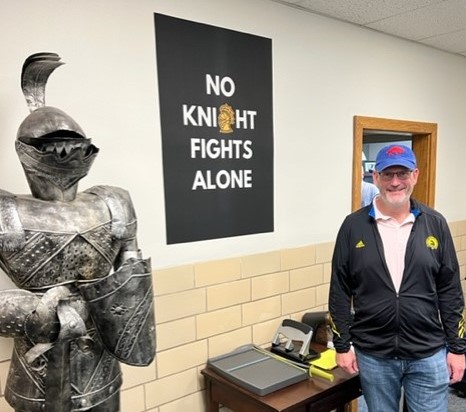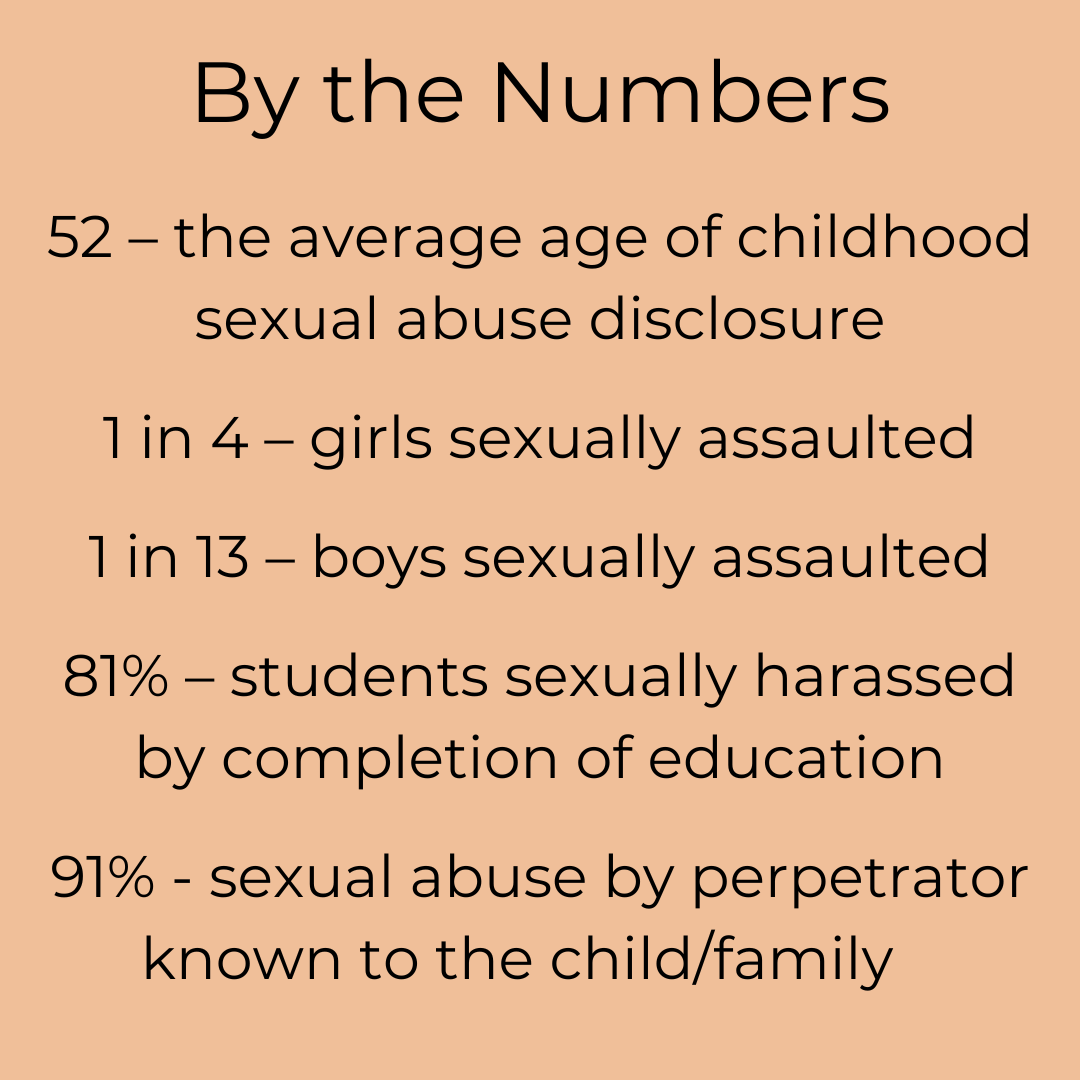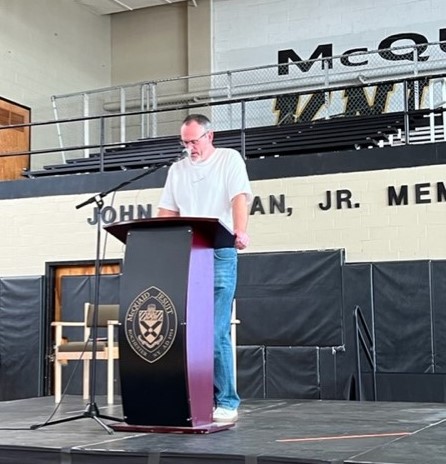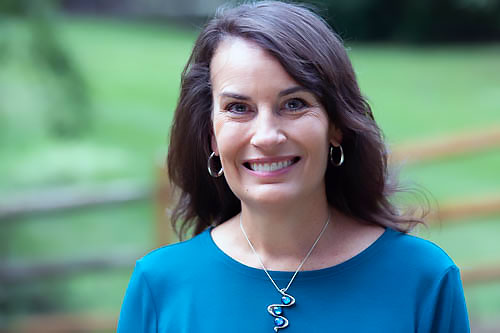A Holiday Wish for Survivors and Supporters
Steve shared in his earlier blog how when he first revealed the secret of his sexual abuse, the responses he interpreted as apathy or ignorance, left him lonely, isolated, and misunderstood. Those feelings only intensified over time as the thing that haunted him every day fell off everyone else’s radar, save that of his wife, sister, and a few high school friends. Many people do not know how to respond.
-
Survivors, know you deserve support and perhaps share this information with those around you.
-
Supporters, consider what you can do to show love and concern for the survivors in your life.
Survivors, know you deserve support and perhaps share this information with those around you.
Supporters, consider what you can do to show love and concern for the survivors in your life.
As we celebrate or attempt to celebrate, the holidays with family and friends, it is a good time to remember that not everyone has a shared experience of family gatherings and experiences.
All too often family members and acquaintances revert back to historical mindsets, regaling about the glory days, reveling in happy memories, reminiscing about times with relatives no longer with us, and reviving old jokes and stories.
As I mentioned in my earlier post, it is important to remember that these recollections may bring on the opposite reaction for those of us who have suffered abuse, particularly those involving family, friends, neighbors, or other supposedly “safe” childhood figures. Or they may resurface old or ongoing wounds created from the secondary victimization of disbelief or invalidation.
For survivors:
Here is a link to a post encouraging you to focus on self-care as you navigate this time. https://www.survivorstothrivers.com/uncategorized/finding-peace-for-your-holiday-navigating-family-gatherings/


There is a no better gift to share this holiday season, than that of support, caring and love.
~ Steve Peacock
For supporters:
Here is some guidance to respond to the survivors in your life with care. This template for response and care could mean the difference between lifelong suffering and the beginning of a real-time healing process.
With that in mind, if you are a partner, friend, or family member, please absorb the following to help you better help your loved ones, either those currently suffering, or those who sadly may be victimized in the future. There is a no better gift to share this holiday season, than that of support, caring and love.

What can I do?
Thankfully every recent conversation where I disclosed that I was sexually abused as a child has ended with that very powerful question.
I say this thankfully as my first attempts decades ago at disclosure did not go that well. Or, at least my feeling has always been that they did not go well. I felt alone and isolated, unseen and invalidated, with no ongoing plan, leaving me yearning for something more.
I don’t believe anyone asked me, “What can I do?” then, or if they did, it was only after feeble attempts to understand exactly what I was telling them.
With no framework for trauma response or emotional training and few examples of healthy relationships, they did not tell me the important words that I needed to hear:
- “It wasn’t your fault,”
- “It’s going to be ok,” and
- “We’re going to get you the help you need.”
Unlike many survivors, I didn’t get the feeling no one believed me. Rather, the lackluster response made me feel like they didn’t believe the damage was as significant as it was.
Three decades later, the response has been different.
- Everyone has expressed deep sorrow and concern, listened intently, and echoed back the horror that I conveyed.
- Some disclosed their abuse to me, several for the very first time.
- Others expressed anger and freely offered to be with me when and if I decided to confront the man who abused me (I deliberately try to avoid the term “my abuser” as he is not my anything, in relation to me he is only the one who abused me).
- A few hugged me and told me that they loved me, some for the first time.
This time around I felt seen, heard, and understood.
I could feel the shame and my own uncertainty about the significance of this violation lift, feeling completely comfortable discussing my truth as if it was any other non-sexually related childhood trauma. And so, my immediate response to the question above during these conversations was “you have already done so much.”
Upon further reflection, and based on my own growth, maturity, intentional unlearning, and relearning about violence against women and multiple forms of formal and informal therapy, I now feel much more able to fully answer that question. Because I do want something more. After four decades of living in my private hell, I want a lot more.
Every survivor deserves more, particularly from those closest to us.
- First and foremost, Believe Her, Believe Him, and Believe Them. Be there. Non-judgmental, just supportive. Don’t ask questions like “how did you get in that situation?” or “what were you doing, thinking, or wearing?” or say, as in the recent movie “Luckiest Girl Alive”, “I didn’t raise you to be that girl.” Check in periodically, even just asking – “are you ok?”
- Destigmatize mental health therapy and treatments, for so many reasons.
- Accept the facts about the prevalence of sexual violence, particularly against women, children, and marginalized communities, and reject the systems, customs, and patterns that perpetuate it. Call for an end to the silence in which abuse and its devasting wake thrive.
- Embrace your role as a supportive friend, openly discuss survivors’ stories to promote awareness, create safe spaces for disclosure and share effective and caring ways to respond.
- Create an environment where the shame is passed from the abused to the abusers, where victim blaming and shaming and targeting, grooming and grotesque sexual objectification no longer have oxygen to breathe.
- Work unequivocally to end ambiguity and implement zero tolerance for rape culture, including codifying consent into our minds, behaviors, and laws.
- Actively call upon others to see the truth about power dynamics and accurately name sexual abuse as the violent act that it is.
- Become vocal and visible advocates for changing the norms, laws, and culture siding not with the aggressors but with the aggrieved.
- Listen to what the survivor communicates to you and respond compassionately.
While I recognize the size of the ask, it pales in comparison to the enormity of the weight of the loss for not only me but for millions of others. Others who need this tectonic shift to either avoid falling prey to individuals and organizations structured to facilitate abuse and escape retribution AND/OR those that continue to suffer, potentially, for their lifetime alone in their heads, asking another series of heartbreaking questions – “What did I do?”, “Was it really that bad?”, “Will I ever feel whole again?”, or even, “Can I bear to live another day?”
In Solidarity, Steve
We thank Steve Peacock for sharing his heart and his story to encourage this Thriver Tribe. When Steve and I first met, he signed his email to me with, “In solidarity.” I absolutely loved it because we are indeed stronger together, stronger in solidarity! Here’s to Thriving, Tambry

Steve claimed four words that changed the trajectory of my life forever – “Sexual Assault Survivor Advocate”.
This opened a door to another dimension, one where he could begin to imagine a new life, an authentic life, a full life. This is the LinkedIn tagline of Alex Prout, co-founder of the I Have The Right To organization, and father of Chessy Prout, a courageous survivor of sexual assault in high school and an incredibly powerful advocate as well. Steve courageously shares his story to encourage others to share the secret that haunts them so they are no longer haunted by it.
I Have The Right To is the hub for middle and high school students, parents, and educators looking for information, support, and avenues of action against sexual assault. Our mission is to create an ecosystem of respect and support for students and survivors of sexual assault. Our Approach I Have The Right To accomplishes its mission by:
- Providing actionable support and tactical resources to survivors of sexual assault and their parents and communities
- Curating curricula and training in partnership with middle and high school educators, administrators, and parents
- Building online spaces that value and promote social and emotional education On a daily basis, I Have The Right To supports and provides resources to survivors and parents, and partners with educators to bring appropriate curricula and training to schools.
Here is a link for students:
https://ihavetherightto.org/our-programs/students
Here is the link to the pledge for everyone:

 Talk To Tambry
Talk To Tambry
I am glad you have taken the time to engage with this blog. Sometimes it is helpful to process new insights that emerge. If you would appreciate brief time with a someone who understands, our Talk to Tambry offering is for you. For 30 minutes, you can receive support from Tambry who is a certified life coach, spiritual director and a survivor who has been on the journey as well. This is offered at a reduced rate of $50.




